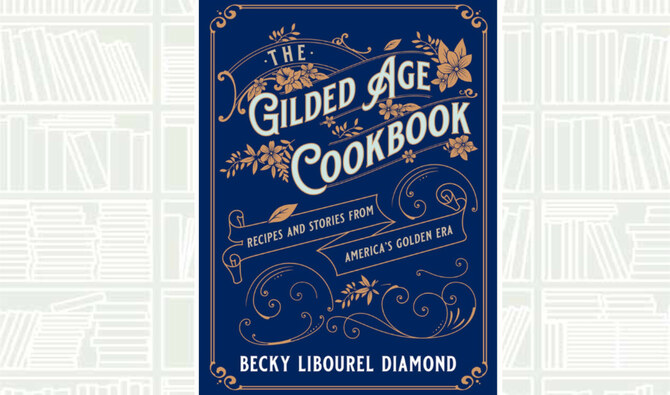Author: Becky Diamond
Food historian Becky Diamond’s “The Gilded Age Cookbook: Recipes and Stories from America’s Golden Era,” published in 2022, is an invitation to step into the lavish dining rooms of late 19th-century America — particularly between 1868-1900 — a time when grand opulence and excess defined both social life and cuisine.
The book, which is part-history, part-recipe collection, captures the grandeur of a period that saw the rise of grand hotels, extravagant banquets and a growing fascination with French-inspired fine dining in the US.
Each recipe — ranging from elegant terrapin stew to delicate oyster patties — is accompanied by historical context, allowing readers the chance to imagine, not only how the food was prepared, but why it was significant. Some seem easy enough by today’s standards.
Through anecdotes of extravagant multi-course feasts and the social norms surrounding them, Diamond paints a vivid picture of a time that valued culinary spectacle as much as social status.
The inclusion of detailed notes on dining etiquette, such as the correct way to serve a souffle or the intricacies of formal table settings, adds layers of authenticity to the reading experience.
The book features some menus of the time, showcasing what one could get for $1. Spoiler alert; it was a lot.
It also highlights how many of the glittering Gilded Age mansions of New York and Newport were built by the railroads — which made food transport much easier and, as a result, allowed people the ability to enjoy more foods and more elaborate meals.
Ultimately, “The Gilded Age Cookbook” is a feast for both the mind and the palate, offering historical spoonfuls alongside a delightful — if slightly questionable — selection of recipes to try.


























